#106: GLENSTONE: A CONVERSATION BETWEEN ART, LANDSCAPE AND ARCHITECTURE
The “Pavilions” forming the “Water Court” (photo by Anthony Poon)
To call Glenstone a mere museum is to misrepresent the power of how a visitor can experience art. The museum’s website posits, “Glenstone is a place that seamlessly integrates art, architecture, and landscape into a serene and contemplative environment.” And boy, it’s successful.
Glenstone blurs the lines between the three mediums. Know this: “Art” is not just a simple framed painting hanging on a gallery wall. At Glenstone, art is a relationship between several forces experienced as an enchanted journey through time and space.
For my soon to be published second book, I scribed, “Do I like playing a Beethoven piano sonata more than writing a position article on the design industry? Do I enjoy working on a large mixed-media art piece more than designing a Buddhist temple? I don’t see any such exercises as separate, or in any way, independent from each other. Artistic endeavors are not discrete. All my investigations, experiments, tests and failures fall under the shelter of a single umbrella, a simultaneous effort—that of a creative voyage with no starting point and excitingly, no end in sight . . . Music, painting, writing, architecture, and so on. For me, it is all one artistic gesture—interconnected, intertwined, inseparable.”
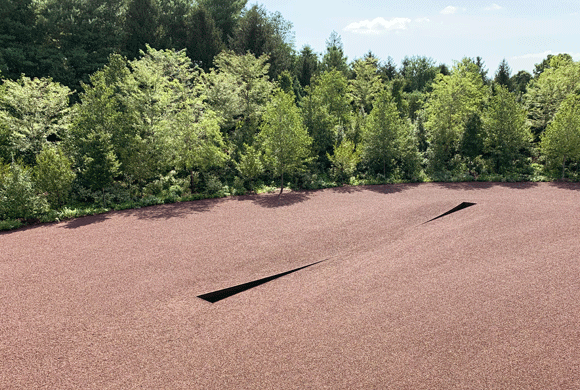
Over the years, Glenstone’s founders, Emily and Mitchell Rales, billionaire business leader and philanthropist, amassed an incredible private art collection of approximately 1,300 works from the 20th and 21st century: Twombly, Kelly, Heizer, Basquiat, Rothko, Koons, Serra, just to name a few—the Usual (but incredible) Suspects. In Potomac, Maryland, Glenstone opened in 2006 with safe and somewhat predictable Modern buildings by New York architect, Gwathmey Siegel & Associates. The museum’s name is a mash-up of the nearby Glen Road and the indigenous Carderock stone.
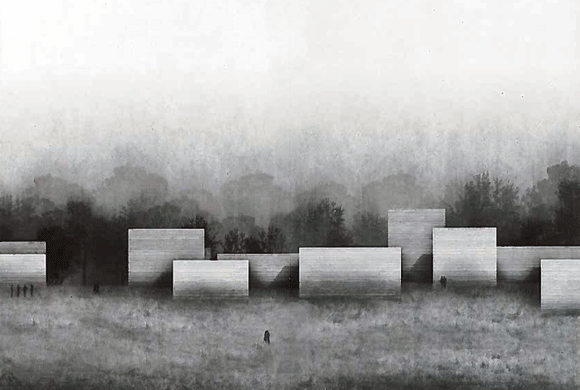
In late 2018, the museum entered the transcendental world stage with architect Thomas Phifer and Partners’ powerful composition of the “Pavilions” and “Water Court,” with landscape collaboratively designed by Peter Walker of Berkeley, California. Glenstone’s 230 acres transformed into a state of mind that balances art, sculpture, installations, design, nature, water, light and all good things. Glenstone challenges one of my favorite places on Earth, the 500-acre Storm King Art Center in Mountainville, New York.
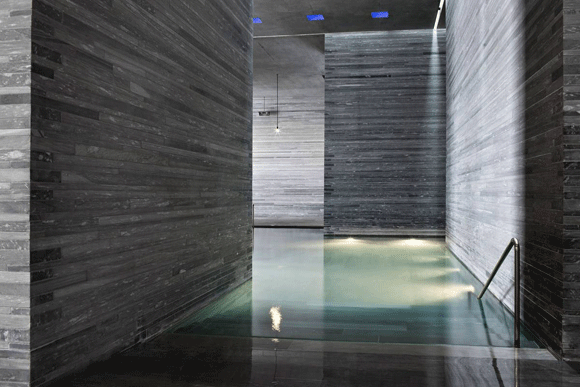
Akin to the Minimalism of architect Peter Zumthor’s Therme Vals Spa in Switzerland, Glenstone is dramatic and theatrical, despite its mute Pavilions. A dozen of them, each a single art experience, center around a sunken water garden. Who knew that saying nothing and being silent can say so much? Here, an engaging and direct conversation occurs when a massive vertical wall of Cardderock stone meets the peaceful horizontal surface of reflecting water, while above is the infinity of a blue sky. Nothing more, nothing less, and yet, so much more.
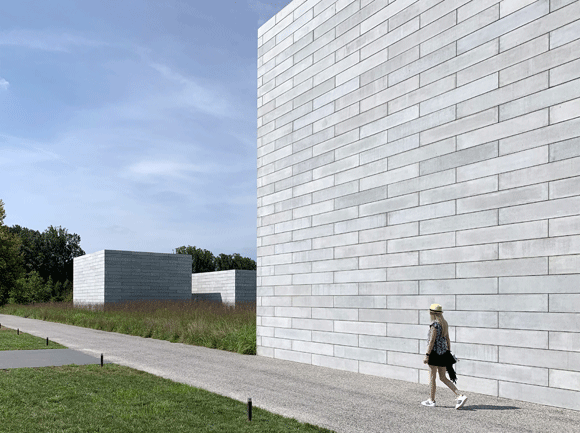
Even the museum staff are Minimalistic. Accompanying their drab grey cotton garb with pants cropped at the ankles, they each have a small name tag of slim horizontal chrome stainless steel. But the name tags remain blank!
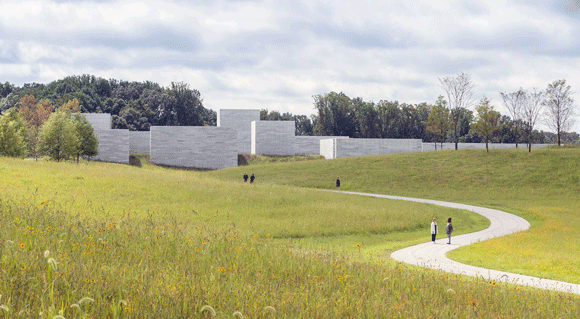
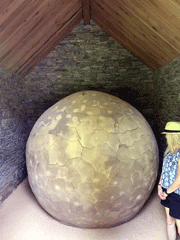
The overall result of Glenstone is a must-see, near-religious experience of Modern art, elemental architecture and the pastoral outdoors. Make a reservation; the museum only lets in a limited number of people per day. And sorry, no photography allowed within the galleries.


